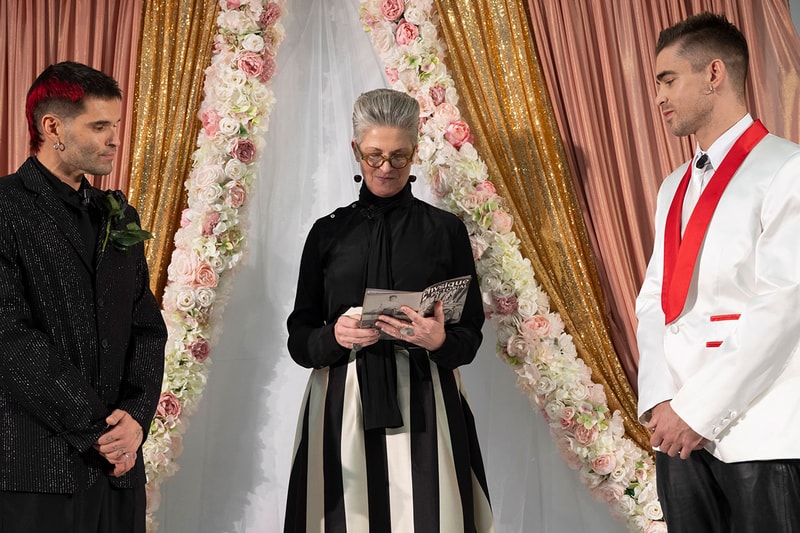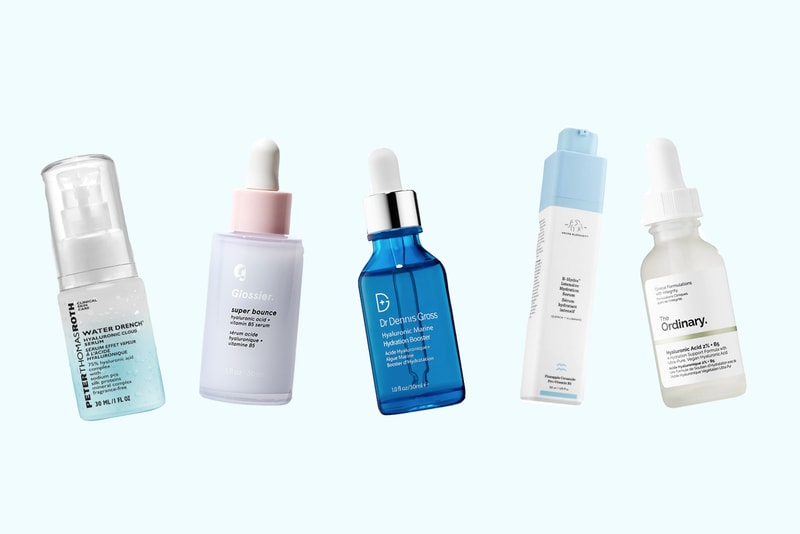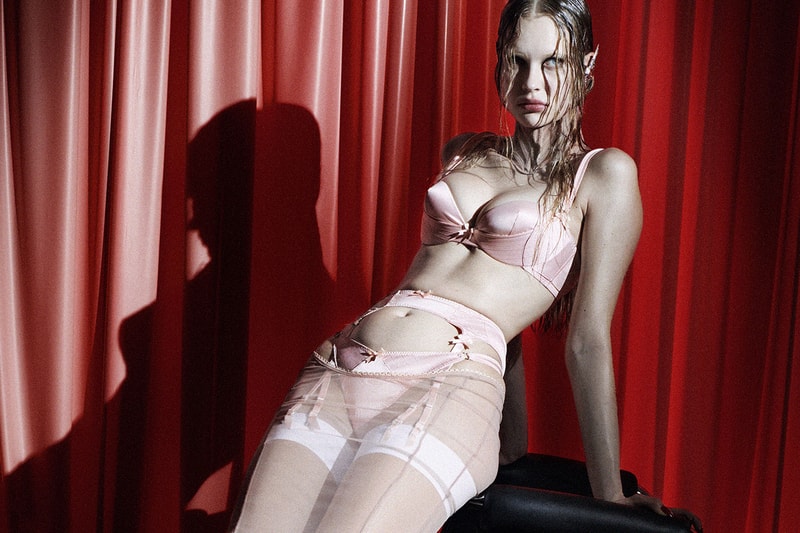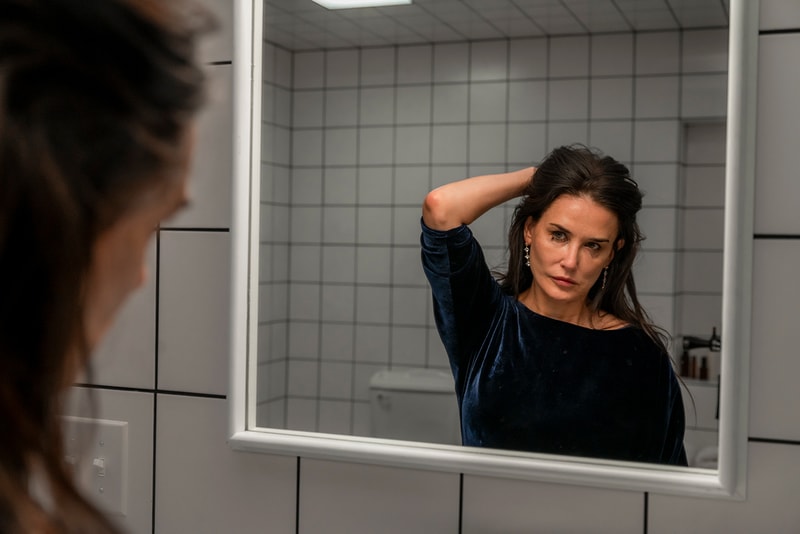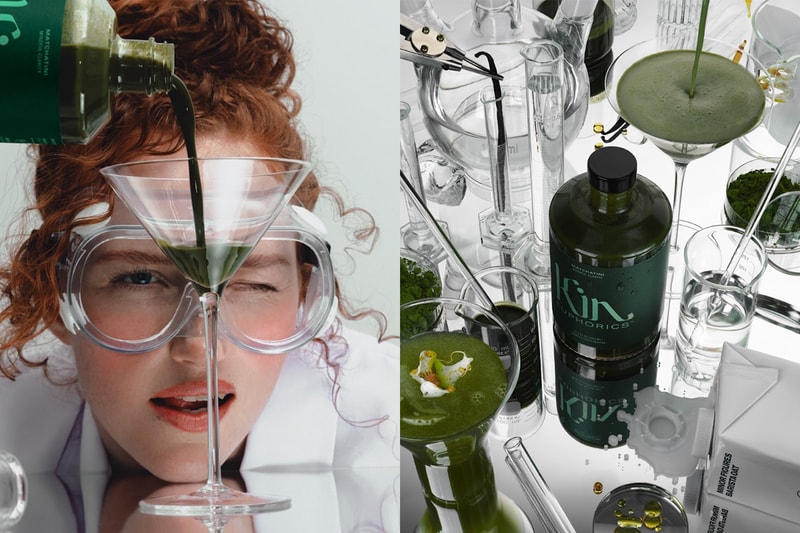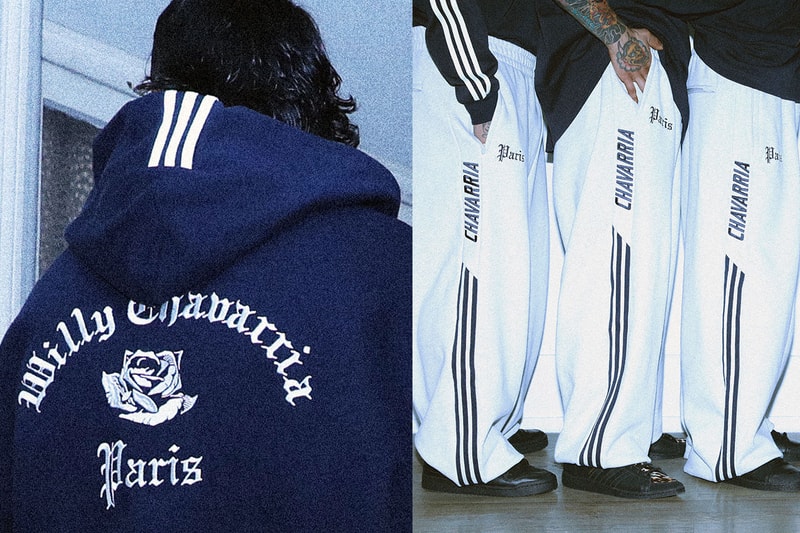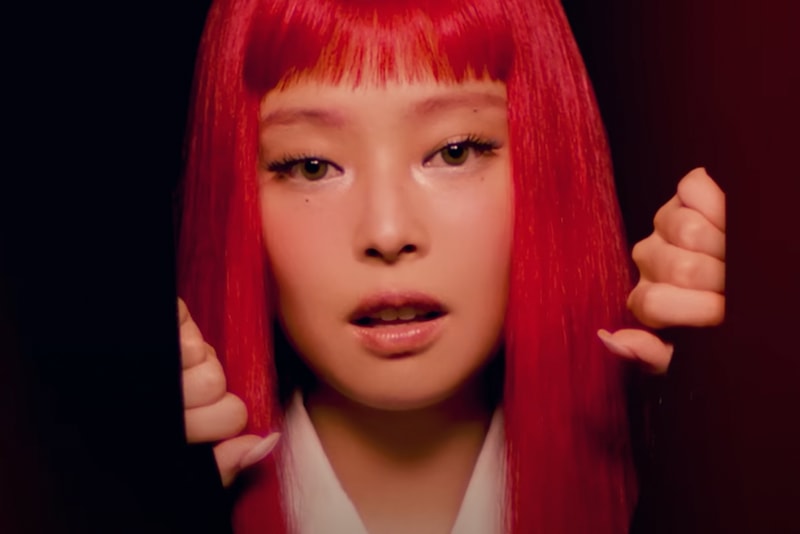Deun Ivory on Creating a Safe Space for Black Women Healing From Sexual Trauma
info@hypebae.com (HYPEBAE) Fri, 28 May 2021 HYPEBAE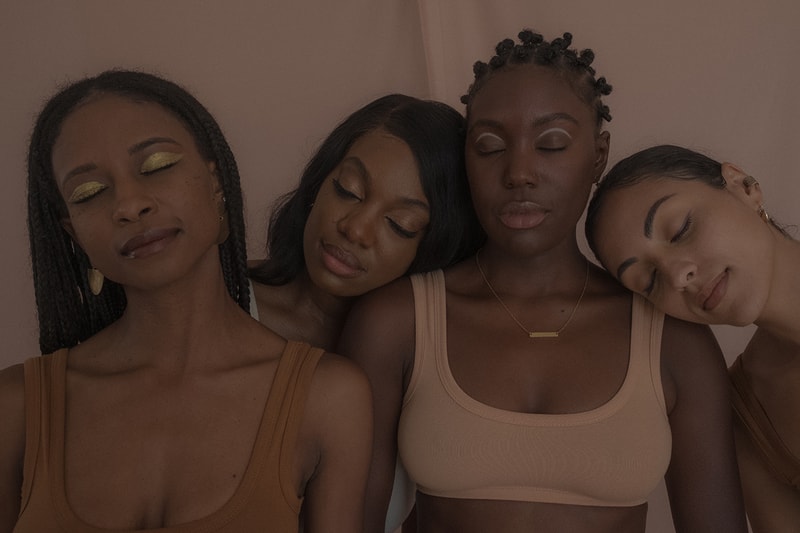
Deun Ivory, a Los Angeles-based director, photographer and creative wellness designer, has made it her mission to dedicate her work to the untold stories of Black women. Back in 2018, Ivory expanded her visual storytelling skills by taking part in VSCO Voices' grant program, with her entry The Body: A Home for Love exploring the narrative of Black sexual trauma survivors.
"This journey has been life-altering in every way possible, primarily because it has required me to face and accept this truth: I am traumatized by my childhood experiences and by men, especially men of God," Ivory explained the process behind creating her project. "Myself and the women involved use our voices to unpack the details of our traumatic experiences, dismantle the belief that women are responsible for these attacks and share the healing journey of how we’re reclaiming our bodies as a dwelling place for love, joy, beauty and comfort."
With The Body: A Home for Love resonating with many, Ivory decided to turn the series into a non-profit wellness membership space. Keeping its original name, The Body: A Home for Love offers Black women resources, tools, a community and spaces where they can continue their self-healing journey as safely as possible.
During Mental Health Awareness Month, we spoke to Ivory about the initiative and how it provides a supportive environment for Black women.

What got you into photography?
My ex-husband, Eric Michael Ward, got me into photography. He had this really beautiful way of making stunning moving images from everyday ordinary things, and seeing him do that was just like magic to me. So, I wanted to create my own magic through photography. I've always been gifted in the arts -- I write, dance, sing and draw, I literally do it all. But photography was something that I wasn't inspired to tap into until I saw him create beauty from the most ordinary things. He told me that I should just start documenting my life. I remember using the iPhone 3G at the time and I started taking photos of things that I was moved by. He really encouraged me and told me that I had an eye for photography, and so I just started to continue down that path. Eventually, it went from me wanting to take images of things that I was inspired by, to actually wanting to tell stories and create powerful messages. It started as an art practice that was cool and inspirational, and it definitely evolved into something more meaningful and passionate.
How did you want your work to be perceived in the beginning?
My initial intention was to create things that I never had a chance to see when I was younger or create things that people were just inspired by. I had no limitation on how that would take place or how that would show up. I just wanted my work to inspire people. I love creating and curating beautiful aesthetics -- these ethereal images that are just otherworldly, especially as it revolves around Black women. I think me wanting to create my own version of beauty or give people an insight into what I consider beautiful was my initial intention.

Has that goal changed over time?
The goal changed because I started to understand the difference between being a photographer and being a visual storyteller. I was inspired to think that way because of Carrie Mae Weems, author of The Kitchen Table Series. Weems is a Black woman photographer and her work is absolutely breathtaking. Seeing how her work moved me and the stories behind it, I asked myself, “How am I using my work to tell stories? How am I using my work to inspire people or transform the way people think about themselves and how they love themselves?”
As I said, it went from being a hobby to me really feeling convicted about the messages that I was creating through my work. Understanding that visual storytelling could be restorative. It could be a source of healing for people in a way that words can’t do or just in a way that other art practices can do. Learning the power of photography made me want to be more intentional about what I was communicating through my work.
"I’m glad I was able to create this community for Black women as a safe space, and use these methodologies that allow us to understand that healing from trauma doesn't always have to look like this daunting process as isolating."
In 2018, you created The Body: A Home for Love, which was your entry for VSCO Voices’ grant program. What inspired you to dedicate your photo essay to Black women who have experienced sexual abuse?
I had no desire whatsoever to do the work that I'm currently doing. I say that because as a survivor and as a creator, I'm a person who wants to always center my work around joy, empowerment and affirmation. I think that I started to develop the idea that addressing my trauma or healing could not come from a path of joy. That kept me from wanting to pursue healing in my own journey as a sexual assault survivor, and it was really God that convicted me and really inspired me to dedicate my photo essay to Black sexual trauma survivors.
In my work, you see Black women and I'm always talking about our beauty, magic and resilience. I remember God saying specifically, “I want you to explore sexual assault.” However, I felt like I was not qualified to do that because I wasn't actively on my healing journey from sexual trauma. I asked myself, “Who am I to do such a thing?” But I feel convicted. I'm a person who is fueled by conviction, purpose and joy. So, I felt like me saying yes to that would lead to something beautiful, and it did.
Ultimately, I felt compelled and convicted to move in this direction because, on the other side of that, was a path to my own healing. It was also a path to me reclaiming everything that I felt like I was robbed of when I was going through sexual abuse at a young age. I’m glad I was able to create this community for Black women as a safe space, and use these methodologies that allow us to understand that healing from trauma doesn't always have to look like this daunting process as isolating. It may be re-triggering, but it can be a process of you tapping into joy as you heal -- not after you heal, even if that's a thing.
I really wanted to dedicate imagery that allowed me to capture every Black woman's version of healing, because we all have a different way of understanding what healing looks like for us. The journey of sexual trauma and sexual trauma itself is just so nuanced. Giving Black women an opportunity to show up in such an expansive way and to embody joy after trauma is so moving for me.

How do you create a safe environment with your subjects during photoshoots?
As a photographer, I think that it's important to always look at you as being the servant. I think that that's just an aura that I carry with me when I'm photographing Black women, because I understand how delicate it is. I understand the beauty and the power of making someone feel seen -- it's a privilege and an honor to do that. I feel like having that trust is how I'm able to create a safe space for these women, because they know that I'm not here to exploit them. I'm not here to objectify them. I'm here to hold space for them to be all that they are, to love them, to serve them and to empower them through photography.
Most people know that my work is used as a restorative practice, and because I feel like I also have this very loving spirit, people can trust and be vulnerable around me. It’s also important to make sure to them that I'm not trying to mold them to be anything that they aren't. I'm here to listen to them and help them tap into their power. It's all about serving them, and so when you do that, people want to show up -- they feel inspired to glow and they feel supported. They also feel like they can take up space in such an expansive way.
Why is that important to you?
It's a priority for me because I believe that Black women are worthy. Photography is not just about taking photos of pretty things. It's about the experience that a person walks away with. It's like a therapy session and I feel like I approach it from that perspective. It's a priority for me to create a safe space for Black women, because I want them to see themselves when they feel the freest and when they feel the most joy.

Did you expect your work to become the inspiring and empowering platform it is today?
Not really. I am a person who just loves the work that I do. I don't think about what the work is going to do. I just think about who I wanted to affect and how I want people to feel when they receive it, because it is my love offering. So no, I didn't expect it to, but I'm not shocked by it. I'll say that because I think that it's meaningful, and I think people feel me energetically when they receive it -- they feel my love, the authenticity and my genuineness when it comes to how I photograph women.
"I'm so much more than what I've gone through, and I'm so much more than what these negative thoughts try to trap me into. I'm an expansive, ever-evolving human being who is worthy of being happy and who is worthy of healthy love."
How has your wellness membership space been able to help Black women who are healing from sexual trauma?
Creating a wellness space solely dedicated to Black sexual trauma survivors is so revolutionary in many ways. We outsource only Black women practitioners, which is amazing because we're able to create this ecosystem of economic and emotional sustainability.
Through our wellness membership, we are providing access to resources, tools, community and safe spaces where Black women can journey as safely as possible. They're able to journey through their process while feeling supported and seen, and not feeling ostracized, isolated or demonized in any way. Through the practitioners that we bring on, we are able to tackle the multiple layers and nuances of their journey. We do yoga, and we have classes on healing around intimacy, healing around platonic relationships, creating boundaries and writing sessions. Everything we offer is truly just about reclaiming your voice, power and body. We believe that Black women are worthy and we're helping them heal through joy. We're able to offer so many different classes, tools and sessions that really remind women that they are powerful, they are whole, they have the ability to think independently of the trauma that they’ve gone through, and that their trauma is not the sum of their identity.
As a survivor, we sometimes feel like this is it. We think, “I'm always tied to this situation” or “My decisions are trauma-informed.” With that, we're helping Black women to reprogram their minds and to show them a different reality, one that affirms that they are worth being happy and deserving of experiences that aren't tied to the trauma they’ve gone through. We’re also essentially creating a different culture that normalizes Black women healing, loving, freeing and seeing themselves.

Everyone's healing process is different, but are there any steps you've found beneficial?
Dr. Taymour says, “Healing is a process of coming home to yourself.” When you think about it, you just have to understand that the process of healing is not linear. Different things work for different people, and different things resonate with different people. I think knowing that helps us not judge ourselves regarding the pace that we're moving at. It’s a beautiful thing to know that your healing journey is specifically tailored to you and your needs. It's about making you feel seen and serving yourself. There are so many ways to heal and sometimes they don't look like the traditional steps that people share in the wellness space.
For me, it’s important to have an open mind, to love myself through everything and be patient with myself. I’m not bound to anything I don't want to be bound to -- I'm free. My mind is not my identity, it's a tool that I use, but it is not the sum of who I am. I'm so much more than what I've gone through, and I'm so much more than what these negative thoughts try to trap me into. I'm an expansive, ever-evolving human being who is worthy of being happy and who is worthy of healthy love.

